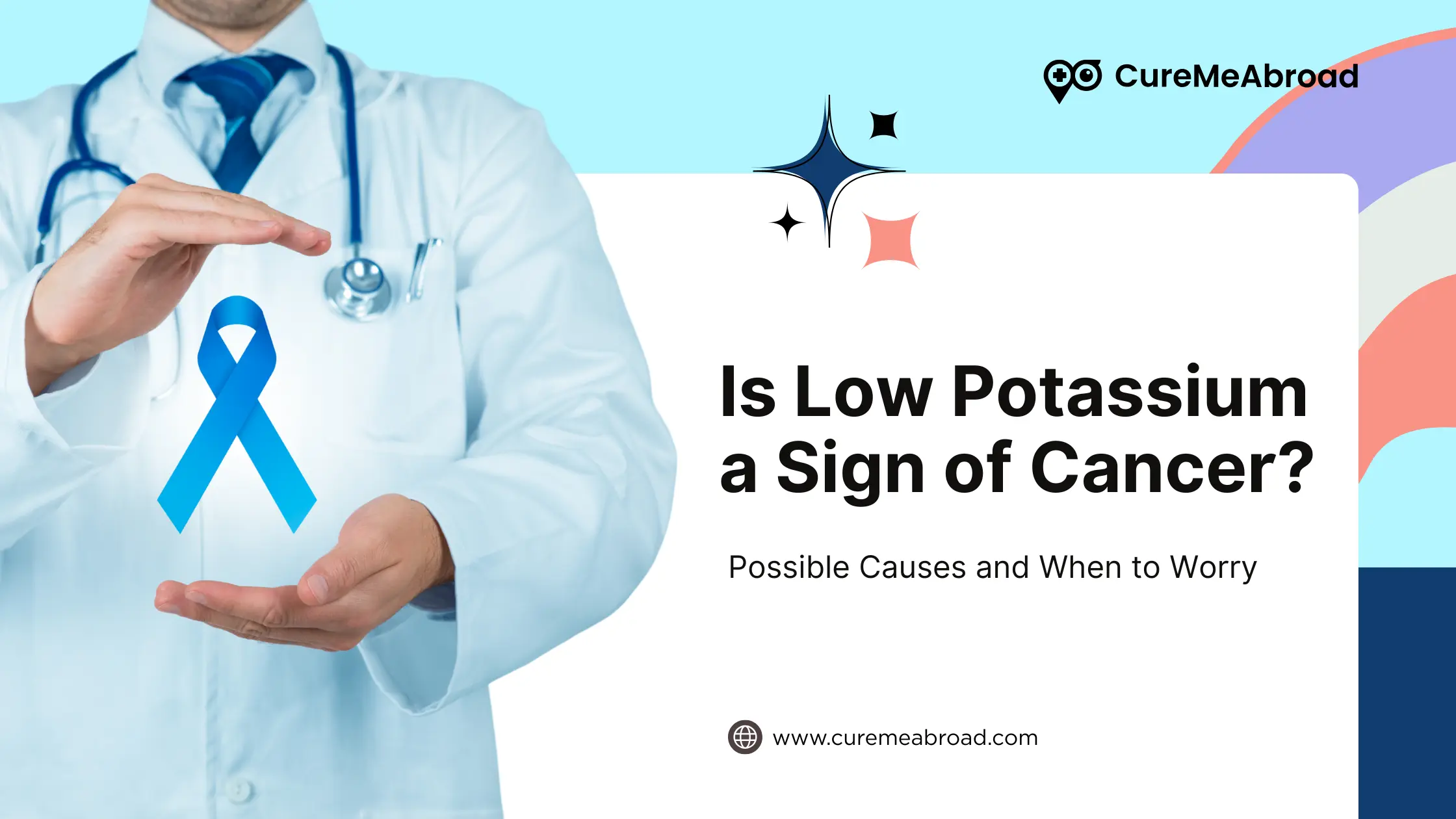Potassium is a vital mineral responsible for normal muscle and nerve function, fluid balance, and heart maintenance. But what does it mean if blood tests show low potassium levels? Many patients wonder: is low potassium a sign of cancer? Although cancer can impact potassium levels, low potassium itself is not typically considered a direct marker for cancer. Instead, hypokalemia may result from a variety of factors, some benign, some serious, and occasionally related to cancer or its treatment.
Understanding Potassium’s Role
Potassium operates as an essential electrolyte, working inside every cell to transmit nerve signals, help muscles contract, and maintain healthy heart rhythms. Normal potassium levels range from 3.6 to 5.0 mmol/L. When levels fall below this, symptoms may include muscle weakness, cramps, fatigue, and irregular heartbeats.
Is Low Potassium a Sign of Cancer?
The direct answer: Low potassium is not a definitive indicator of cancer. According to medical experts, cancer rarely presents with low potassium as a primary symptom. “Of all the various signs related to cancer, low potassium would not be on top of the list,” explains Dr. S. Adam Ramin, a board-certified urologist and oncologist. However, certain cancers or cancer-related treatments can result in hypokalemia under specific circumstances:
- Gastrointestinal cancers can cause chronic vomiting or diarrhea, leading to potassium loss.
- Adrenal gland tumors may disrupt hormonal control of potassium and sodium, causing imbalances.
- Chemotherapy and other cancer medications can impact kidney function and potassium absorption, resulting in low levels.
Therefore, while cancer may contribute to hypokalemia, low potassium alone is rarely a sign that points directly to cancer. It is more commonly considered alongside other symptoms and medical findings.
Common Causes of Low Potassium
The majority of hypokalemia cases are due to reasons unrelated to cancer:
- Dietary Deficiency: Not consuming enough potassium-rich foods, such as bananas, oranges, spinach, or potatoes.
- Medications: Diuretics, some antibiotics, and laxatives can cause potassium loss through urine or stool.
- Digestive Issues: Persistent vomiting or diarrhea can prevent absorption and increase loss of potassium.
- Kidney Problems: The kidneys filter potassium; dysfunction can lead to imbalances.
- Hormonal Changes: Conditions that alter aldosterone levels, such as adrenal tumors or Cushing’s syndrome, can drop potassium.
- Excessive Sweating: Particularly in athletes or those living in hot climates.
Symptoms of Low Potassium
If potassium levels drop below normal, symptoms can range from mild to severe. The most common signs include:
- Weakness or fatigue.
- Muscle cramps or spasms.
- Constipation.
- Irregular heartbeats or palpitations.
- Tingling or numbness.
Severe hypokalemia can be especially dangerous for people with heart conditions, potentially leading to arrhythmias or, in rare cases, cardiac arrest.
When to Worry: Low Potassium and Cancer
If low potassium is accompanied by other cancer warning signs such as unexplained weight loss, persistent fatigue, night sweats, or abnormal lab results medical investigation is warranted. Cancer-related hypokalemia generally arises as a complication rather than a primary symptom, and is usually associated with:
- Malfunctioning kidneys due to tumor growth.
- Damage to the adrenal glands.
- Chemotherapy side effects.
- Chronic gastrointestinal symptoms from tumor burden.
If a person is undergoing cancer treatment and experiences persistent muscle weakness, spasms, palpitations, or digestive changes, prompt discussion with a healthcare provider is essential.
Diagnosis and Medical Evaluation
Diagnosing the underlying cause of hypokalemia requires a thorough evaluation. Physicians may order blood tests, review medications, assess dietary intake, and check for additional symptoms. In patients with cancer, regular monitoring of electrolyte levels is standard, as electrolyte imbalances often require timely intervention.
Treatment and Prevention
Treatment depends chiefly on the underlying cause. Options may include:
- Increasing intake of potassium-rich foods.
- Adjusting or discontinuing medications that lower potassium.
- Treating kidney or hormonal disorders.
- Managing vomiting or diarrhea.
- Potassium supplements (only under professional supervision).
People with cancer may need additional monitoring and sometimes intravenous potassium, especially if treatment or disease burden increases the risk of hypokalemia.
Final Thoughts
So, is low potassium a sign of cancer? Not directly. Hypokalemia is a multifactorial condition most often resulting from non-cancer causes. However, certain cancers, treatment regimens, or complications can contribute to low potassium as part of a wider spectrum of symptoms.
If persistent or severe low potassium occurs, especially alongside other unexplained health changes, consult a healthcare professional for a full evaluation. Early detection and proper management are key in both cancer care and general medicine.









